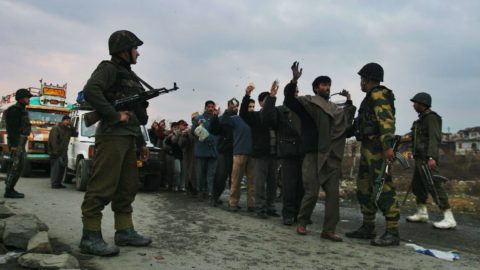A coalition of prominent Indian jurists, civil servants, and military veterans has accused the Modi…
India’s “Development” Project Threatens Kashmir’s Agricultural Heartland and Farmer Livelihoods
On December 4th, new revelations about the controversial Srinagar Ring Road project indicate plans for 30 town planning schemes along its length, spanning regions from Gallandhar in Pulwama to Tulmulla in Ganderbal and Mirgund in Baramulla.
According to a report by The Wire, these schemes, each covering around 200 hectares of land through “land pooling,” will collectively convert around 6000 acres of prime agricultural land into urban developments.
The proposed plans have sparked widespread alarm, particularly among small and marginal farmers who rely on these lands for their livelihoods. Critics argue that the project threatens the backbone of Kashmir’s economy—its agriculture sector—while deepening fears of environmental degradation.
“Destroying fertile agricultural land for urban expansion is not development; it’s a deliberate attack on the livelihoods of Kashmir’s farmers and the region’s self-reliance,” said a Srinagar-based activist who wished to remain anonymous.
Communities in districts like Budgam, which have already witnessed large-scale land acquisitions, report displacement, disruption of income sources, and growing uncertainty about their futures. The transformation of fertile lands into urban spaces also raises serious ecological concerns, as it disrupts the delicate balance that sustains Kashmir’s biodiversity.
The projects also align with broader fears of demographic engineering and dispossession, as successive policies continue to erode Kashmiri ownership of land and resources. Kashmiri anthropologist, Muhamad Junaid, stated “30 “townships”! For whom? Every act of “development” is an act of dispossession.” He held that these townships are not meant for local population but as an attraction for outsiders so as to enable demographic alteration.
Pro-freedom groups have condemned the plans as part of a larger strategy to weaken Kashmir’s local economy, displace its people, and consolidate control over the region’s natural assets. The looming developments underscore the need for urgent resistance against policies that prioritize occupation and profit over the well-being and autonomy of the Kashmiri people.




